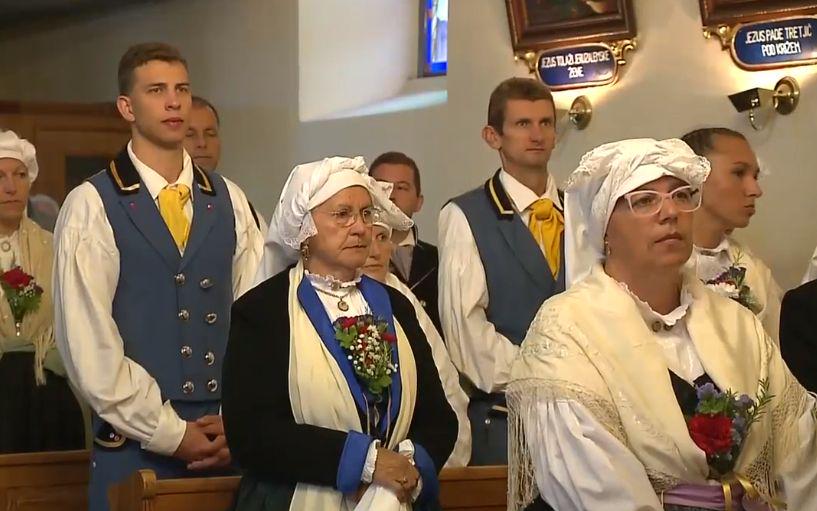
When a part of the Karst was awarded to Italy, it was cut off from the rest of the Slovenian-speaking plateau. In order to preserve their Slovenian identity, the local population increasingly turned to traditions passed down from generation to generation, including Kraška Ohcet, the traditional local wedding.
Weddings have long been important events in the small, widely scattered villages of the plateau, but in 1968 a group of locals decided to make Kraška Ohcet an annual event.
The weddings take place every August in the village of Repen. Each year, a local couple is selected to take part in a wedding featuring local music, dancing, and food. People from across the Karst Plateau and beyond gather for the celebration, many of them dressed in traditional clothing.
Even though the modern tradition is relatively recent, the various elements of the festivities – from clothes to songs and dances to the clothing and the processions -- are based on records dating back to the 19th century. The celebrations begin a few days before the wedding, usually with an old-fashioned serenade. Another important event is a wagon-led procession of the bride’s possessions through the village. The wedding itself takes place on a Sunday, when several hundred spectators observe the wedding vows.
In recent years, the organizers have struggled with limited financial resources and ever-fewer weddings on the Karst Plateau, with its aging population and increasingly secular young people. In fact, the wedding had to be called off several times. But in 2018, a large celebration – albeit without a bride and groom -- was held to mark the 50th anniversary of Kraška Ohcet, and organizers have promised that the tradition would continue, keeping alive a living element of Slovenian culture in Italy.


































































